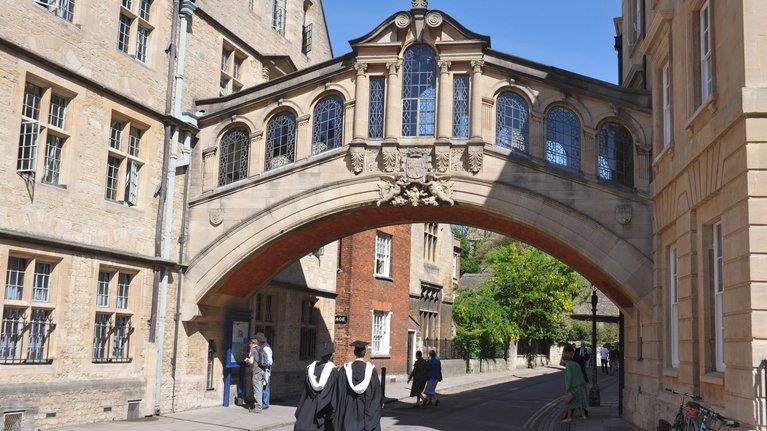Olchfa to Oxbridge: The Swansea students who bucked the trend
- Published
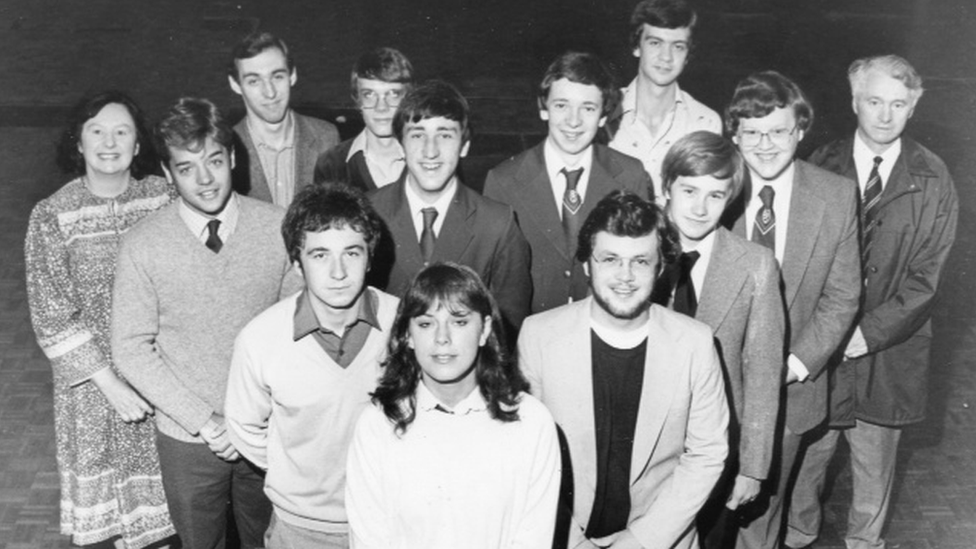
Eleven of the 15 Olchfa students accepted by Oxbridge in 1980 with two of their teachers Iris Williams (far left)
Low academic attainment and low aspiration were issues raised in a 2014 report on why so few Welsh youngsters were applying to Oxford and Cambridge universities.
But in the late 1970s, one Swansea comprehensive school alone got about 45 pupils into Oxbridge over three years - many of them going on to reach the top of their chosen professions.
BBC Wales producer Gareth Jones asked two of his contemporaries at Olchfa - Russell T Davies and Sir Andrew Dilnot - how the school achieved such success.
Within a decade of opening in 1969, Olchfa Comprehensive had gained an enviable reputation for the number of pupils getting into Oxbridge - 15 in my year alone.
In the year before me, 15 got in, including Andrew Dilnot, knighted two years ago for services to economics.
In the year after me, 13 were accepted, including Dr Who screenwriter Russell T Davies, who became one of the most talented writers of his generation.
Both say it was down to the teachers.
One in particular, Iris Williams, made it her job to get as many applying to Oxbridge as possible in a part of Swansea where there was no such tradition.
"Iris, bless her!" Russell said, when I asked him how he remembered her. "Big hair, big character. She stood out and stood up for academic excellence."

Russell T Davies depicted Olchfa teacher Iris Williams in his cartoon strip for the school magazine
Sir Andrew Dilnot recalls her wondering aloud: "Why shouldn't our children go to Oxford and Cambridge? They're as good as anyone else!"
Iris brought in a programme of lunchtime talks and extra tuition for the candidates. She took us in her car to visit Oxford, she got to know admissions tutors, studied individual colleges and matched the candidates to them.
She told Dilnot to apply to St John's Oxford, then as now one of the toughest to get into, academically.
He was accepted to do PPE (Philosophy, Politics and Economics). I followed him there a year later, same college, same subjects.
One by one, those ancient bastions, from Balliol to Trinity Hall, fell to the all-conquering Iris and her sixth-formers.
Perhaps her sweetest success was getting Gaynor Williams into Christchurch in 1980; one of the first women, not just from Wales but from anywhere, to be accepted by that most male and aristocratic of colleges.
But this success was not down to just one woman.
"We had some terrific teachers," Sir Andrew says. "There was Dai Jenkins for maths. He was incredibly demanding. When I got three out of 10 for a test, he wrote 'OAF' in big red letters on my book."
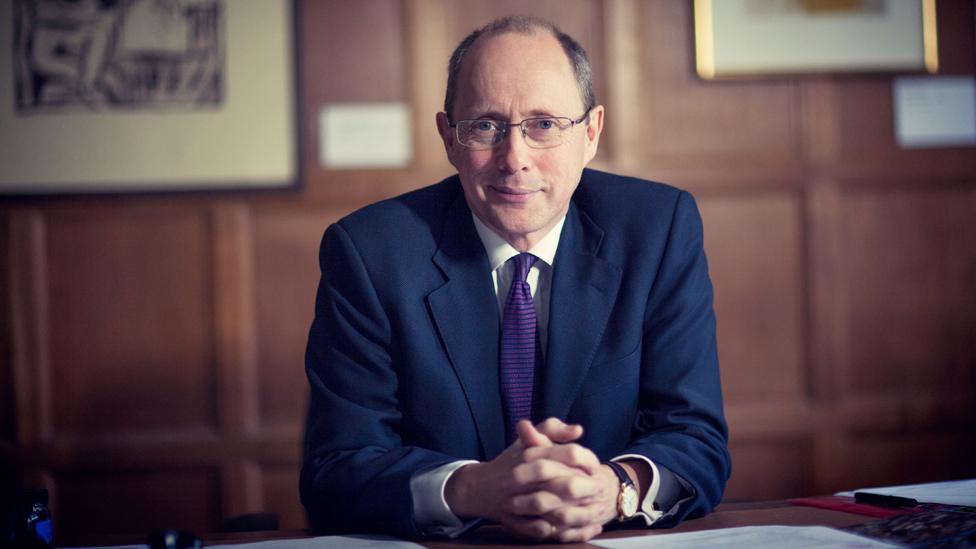
Sir Andrew Dilnot was knighted for services to economics
It may have helped. Andrew is now the UK's top statistician.
Peggy George, a former deputy head, thinks Olchfa's success was down to exceptionally motivated pupils and some superb staff.
"It was a new comprehensive, formed after school reorganisation," she told me. "We had teachers from the old grammar schools who really knew their subject. We also had some very tough male staff, from the old secondary moderns, and they knew how to keep order."
I benefited from Peggy's extra tuition. She taught me how write an essay. "It's not just the answers you come up with, boy," she used to say. "It's about asking the right questions."
It was good training for Oxbridge's uniquely challenging tutorial system. One of my tutors was the leading economist John Kay and I, along with my tutorial partner Angela Eagle - who now sits on Labour's front bench - had to argue against him.
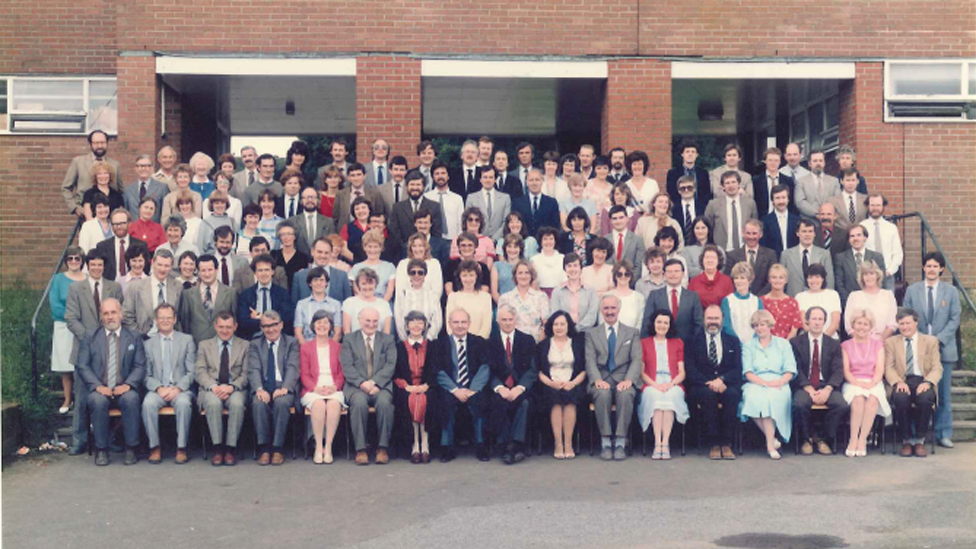
Olchfa Comprehensive School staff portrait 1985
There was a third factor in Olchfa's success - the parents. We came from hugely aspirational families who really valued education. Many of us, including me, were the first in our families to go to any university.
Lord Murphy of Torfaen, who was commissioned by the Welsh government to to look into how to boost numbers of Welsh students at Oxbridge, says we need to raise the level of aspiration.
Sir Andrew Dilnot, the first person from a comprehensive school to head an Oxford college, agrees: "Oxford wants students from all backgrounds, and we are very keen to get more applications from state schools."
Murphy believes sending people to Oxbridge is important and benefits Wales.
Russell T Davies is more ambivalent: "The most important thing is to move away from home - anywhere - to study because it gives you freedom. And there are so many great courses around now."
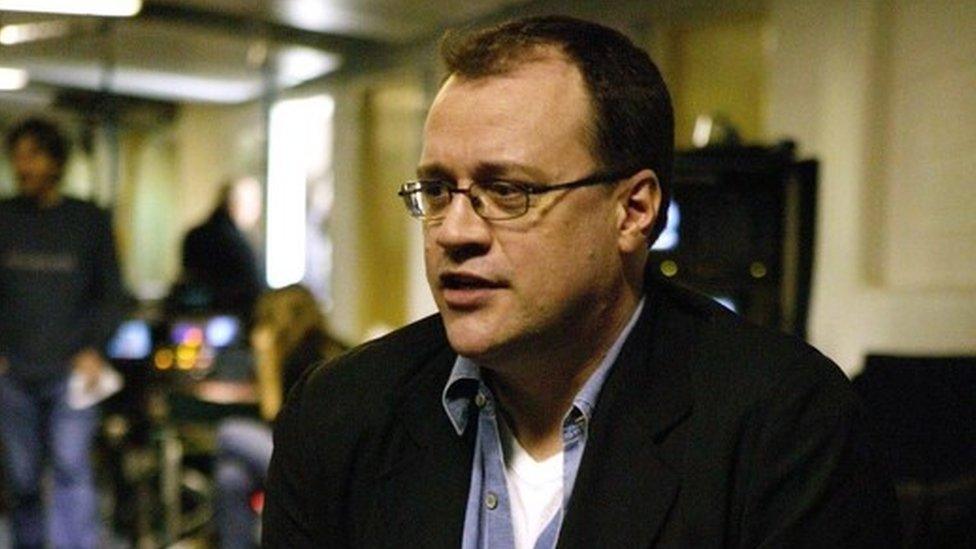
Russell T Davies on the set of series four of Dr Who in 2008
Of that extraordinary group of Olchfa youngsters, hardly any came back to Wales to work. They are captains of industry, one owns a hedge fund, another set up the first nanoscience laboratory.
Russell is one of the exceptions. His work has made a big contribution to the Welsh economy.
Recently he went back to his old college to receive an honorary fellowship. "I felt proud. But I was the only one from a comprehensive school there that day," he said.
You can watch BBC Wales' Week In Week Out programme, Is It Because I'm from Wales, on BBC One Wales at 20:30 GMT on Monday 8 February.
- Published18 June 2014

- Published13 December 2013

- Published18 April 2013
